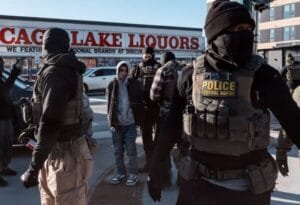Charlie On The Edge Of Town By Kelle Grace Gaddis

(c) tripadvisor
Charlie’s identity was forged out of his rap sheet, scars and tattoos, a sort of map of how he got to where he is today. The jagged white line from his temple to his lip, a bar fight, the marijuana leaf on his left arm, a marketing tool. Charlie claimed the cross on his right arm proved that he was a good man but most wouldn’t have described him that way because they’d heard the stories over the years.
I understand why people react to him the way they do, even when Charlie was a kid, he’d be out at the edge of the ball field swinging wildly before he got in the game. He’d put his full weight into an air ball, imagining himself the hitter of a home run, when he rarely got a chance to strike out. Nobody picked him to play; he could hit but he scared people.

After dad died Charlie managed the farm, that’s when he changed the crops. Some were legal others not. Everybody knows farmers grow corn for all sorts of things. Charlie grew it to hide an acre of weed from the cops.
The Bishop family once had a good reputation as corn, watermelon and pecan farmers. In some ways, the farming life suited Charlie. He said it made him feel closer to God. For a time, I thought of him as cross between the Marlboro man and Moses. He’d ride the tractor smoking Reds and parted the corn with the confidence of Moses at the sea. Nobody would have believed he’d tucked enough pot in there to keep the state of Alabama stoned for a year.
Although people wouldn’t say so in church, they admired Charlie’s relaxed regard for the law, including the law of gravity. One time Charlie allowed a two-bit traveling fair to set up on the farm in late August. When a storm kicked up, blowing hard with heavy rain and lightning cracking sideways, the fair owner told Charlie that they had to shut down the rides until it passed. The little kids cried about not getting a turn on the Tilt-O-Whirl and the teens complained about being “ripped off” because they didn’t get to ride the Rotor or The Hammer.
Some teens got pushy and demanded a refund. Charlie, knowing what he was like at their age, worried they’d vandalize the rides so he took charge. Not that anyone asked him to, but because he never wanted to be associated with failure. I told him the storm was caused by an act of God but he shrugged me off and started climbing the grain silo.
Mind you, this makes no sense but that’s Charlie under the influence. He was wasted on moonshine long before the storm shorted the fair. The jar always made Charlie think he could do the impossible. As he climbed up the silo’s ladder he shouted, “Don’t tell anyone, but there’s a rocket in there!” He’d put his finger to his lips as if he were telling the crowd a secret and shouted, “It’s a leftover from the Cold War and I’m going to ride it to the moon!”
Charlie was nearly fifty feet up, saying something about rocket fuel, when he went from teetering on the upper rung and laughing like a fool, to falling headfirst into a cotton bail. It’s a miracle he didn’t break anything. He’d knocked the wind out of his lungs and his eyes were dilated from a concussion, but Charlie didn’t care. The crowd loved it. He was glad backed and applauded, an audience was all the medicine he needed at least until the liquor wore off, then he toked the pain away.
Sometimes Charlie got real bad ideas. Like the time he tied-up Emmett, the bar manager of Judge’s Saloon, and pretended to be the new bartender. Charlie poured drinks like it was Christmas until somebody heard Emmett kicking in the closet.
Charlie was so lit on whisky that his eyes were rolling around in his head. He didn’t realize Emmett was genuinely furious. Leroy said, “You better hit it before Emmett gets loose” but Charlie just laughed and sat drinking his Wild Turkey, never one to leave a party early. He was plenty cocky after he’d had a few but also knew when to run. After the last rope came off of Emmett, Charlie grabbed the bottle he was working on and tore into the night with Emmett on his heels.
I realized then, Charlie might have been a marathoner if he wasn’t such a drunk. I can’t help but laugh thinking about those two zigzagging across the field, Charlie shouting, “Emmett, stop! Can’t you take a joke?
I shot liquor through my teeth when Charlie came back into the saloon the next day. Emmett had fired two shots at his silhouette before he disappeared beyond the tree line. But, somehow, all was forgotten when they raised a toast to Charlie’s secret harvest. It’s good that neither man can hold a grudge longer than a round of drinks.
I could go on and on, there must be a thousand Charlie stories and they all reek of crazy impulse and tragic consequences. My brother is mayhem and self-destruction but I know all he really wanted was to have a good time. That said Charlie’s the sort that could radicalize the world through his martyrdom. I’m not sure he can help it that shit happens when he’s around.
One Easter, Charlie and his friends decided to kill the Easter Bunny in Jesus’s name. They’d started drinking early on account of the holiday but only beer because it was the Sabbath.
Rabbits are pretty abundant in Fairhope but we couldn’t find one in the field that day. Charlie started shooting into rabbit holes with his .22. On his second shot he hit a rock. The bullet ricocheted out of the hole and into his shin. When he fell backward I couldn’t help but hear a Warner Brothers whistling sound followed by a cartoon “Boom!” Even though I knew he was hurt. Then the blood started gushing out of the wound. It soaked his jeans, and left a blood trail where he’d hopped. Tiny and Leroy helped him back to his truck but Charlie insisted on driving. He’d said, “Tiny’s too small to see over the steering wheel and Leroy’s too drunk.” Charlie was drunk too, but it was his truck and nobody argued with him because he was wild-eyed from survival adrenaline and carrying a rifle.
When Deputy Wilkes pulled us over Charlie had lost a lot of blood, his voice had become slow and woozy. Wilkes wouldn’t let him explain why he was speeding. He kept saying, “License and registration,” until Charlie opened the car door and fell out onto the ground. Wilkes took one look at the state of Charlie’s leg and shouted, “Get back in that truck that mess isn’t getting in my car!”
One of the stranger things to come out of that day was Charlie’s newly felt camaraderie with soldiers wounded in battle. He told one soldier who was just back from Iraq that he understood what it felt like to be “Standing tall one minute and taken down by the enemy the next.” I guess he did, even if in his scenario he was the fallen soldier and the enemy.
Charlie became patriotic, even sewed a flag onto his camouflage jacket. He wanted to join the military but, at forty, he was too old to sign-up. He got real down when they wouldn’t let him enlist. He’d already pictured himself as a decorated soldier, a man among men swapping war stories.
Another odd thing after his injury was I learned that Charlie liked being in the hospital. He loved that the staff fussed over him. It was during his stay that he decided to transform the farm. Turn it into a communal living space, almost like a barracks but homey like the hospital ward.
As soon as he was released he spent the last of his inheritance creating the compound. The place wasn’t anything hippy or cultish like David Koresh’s compound once was, although Charlie bore a certain resemblance to that man, it was just a place to hangout, get drunk, fire guns and impress a few women. Charlie had envisioned a tight community and a non-stop party and, for a time, that’s what he got.
Soon enough the farm began to go into decline. Charlie kept the corn perimeter up because he still needed it to hide his main crop. For all other things, he’d come to rely on the supplies that the new arrivals and passers-through brought when they joined his group. The baker’s son exchanged bread for weed. Another guy that worked for Goodwill brought used clothes. It was like a trade hotel, goods in exchange for a bed and a taste of whatever party was available. The smartest was Emmett. He traded beer for marijuana and probably made more profit in resale from the pot crop than Charlie ever did.
Those that moved onto the compound sometimes found work here and there, bailing cotton or corn, sometimes cutting watermelon off the vine or loading truck for the older farmers. The money went into a petty cash jar that was supposed to be for incidentals but as Charlie liked to say, “A party isn’t a party if we don’t invite Jack Daniels, Captain Morgan and Jim Beam,” so most of their money went to the liquor store. Emmett refused to trade in spirits, said it was too expensive. He brought over a keg of Schmidt every time he picked up a bail of grass and called it “even.”
The compound might have worked with a different group of people. Anyone with a sense of direction, but that sort didn’t gravitate to Charlie. He had a few lovers come and go, like fireflies at sunrise, but most women found the place unbearable, partly because women were too easily put upon to cook and do laundry but, mainly, because it was a smelly, dirty, drunken mess. Good women can’t be bothered with that burden.
Charlie didn’t enforce any rules but he was in charge. If anybody else started acting authoritative he’d push them out, this sometimes led to a scrap that ended with black eyes, cracked teeth or somebody getting their nose broken but most people got bored with it and moved on peacefully.
A few times, when Charlie failed to pay the electric bill, the compound went dark for a day. As long as it didn’t go dry, some stayed. When the power was cut off for three weeks, all that had somewhere else to go went.
A rational person might of thought of the compound as a liability but not Charlie. Having a handful of the most stoned drunks in the county firing guns and shattering glass all over the place was dangerous but Charlie took it in stride. I guess he thought it was normal. I find that people don’t notice their own descent until it’s too late.
Some girl claimed somebody at the compound stole her purse. Charlie had to pay her off to keep her from calling the cops. It was all too much.
The shop in town where I worked didn’t want me to associate with Charlie as it cast them in a bad light. My wife didn’t approve either. I started to stay away. I guess I became one of the good people in town.
I heard last winter that the compound was pretty rough. Only the most desperate lingered. When I ran into Charlie he told me that they’d gotten by rolling joints out of freezer weed and tobacco. He claimed he had everyone laughing until their stomachs ached, but I could tell he was worried. Charlie wanted me to come over, but it’s hard with a family and I couldn’t risk my job.
As more people abandoned the compound for town, Charlie’s supplies reportedly dwindled to the point where two people had to share a single potato for dinner. The cash jar was empty because people were too sick to work. The corn perimeter had fallen over to reveal the true nature of Charlie’s business to every passing car on the two-lane. It was a miracle he didn’t get arrested. It was visible for days. I guess because it was cool for a southern winter, the cops preferred the donut shop to the highway and either never noticed or ignored it. I was happy for Charlie when he got the weed cut, dried, and out of sight.
Toward the end of winter, when I finally snuck out for a proper visit, I saw it was far worse than I’d imagined. The drinking had taken a toll on people’s minds. Everybody acted like beer was a reasonable breakfast and liquor a good idea for lunch. The lifestyle had become a necessity for them. I was worried since there wouldn’t be a new crop anytime soon and the farm wasn’t going to earn anything with no one able to work it.
Empty bottles and ammunition were the only things in abundance by spring. These were used haphazardly for target practice. People were afraid to drive by the compound because a stray bullet had shattered a car window. Charlie did get busted that time but the law couldn’t pin the shooting on him and ended up having to let him go.
Later, Charlie told me it was Tiny that shot the car. He’d tripped over a log while walking with his safety off and somehow pulled the trigger. When I asked why he hadn’t told the police he just said, “Can you imagine Tiny in jail?”
The more time that went by even tight bonds began to unravel on the compound. The fury over the state of the place led to spontaneous tantrums and rages. Brawls, addictions, illnesses and an overall sense of loss ripped through the stragglers. Several contemplated suicide but most just crawled their way back to town either pitied by their families or left to forage on the streets.
The only stable thing was instability. Charlie’s future had become as clear as Saran Wrap and just as difficult to smooth out. His life was a knot of problems. All tethers to society had frayed and the town’s people were afraid of it all.
Some of the folks on the compound could no longer tell what was real and what was an illusion. Tiny was worried the Michelin Man might melt, even though Charlie had told him he was made of tires not snow. Daryl wanted to know why the Michelin Man was white if he was made of tires. Charlie had just shrugged and said, “That ain’t right.”
When they were twisted and hungry they wanted to get back at the rich. Charlie railed about his right to bare arms and the snootiness of the townspeople. Everybody agreed they should do something but nobody acted. They might have robbed a bank if the ammunition hadn’t run out.
The drumbeat of hardship on the compound had become unrelenting. It had cultivated an emotional malaise, a silent scream that vibrated with bitterness and hurt. Some had infections others pneumonia but mainly loneliness and despair had lodged in their chests and nobody knew a way out.
I could see that Charlie and his friends were no longer willfully acting against anyone or anything. It was an undoing born of excess. What could Charlie do? He’d lived on the edge of town for too long. The solidity and certainty of life wasn’t his anymore. I guess I’m the lucky one to have not gone in too deep.
Charlie’s 41st birthday came and went. In the months prior to it either ambulance or coroner had carried away those that had remained at the compound too long. Daryl died of a heart attack and, shortly after that, Tiny passed out drunk on his back and choked on his own vomit. That was it for Charlie; he couldn’t take the pain of it all.
The day the coroner took Tiny to the funeral home Charlie quit drinking. He felt responsible for his friend’s deaths. He wanted to do something to make it right. He quit smoking weed and tried to scrape the tattoo off his arm with a knife, a stunt that put him in a different kind of hospital. After a couple of months his mind began to clear. They let him go back to the compound because he’d changed.
On the 4th of July he was handing out little red, white and blue flags to people as they headed to the stadium fireworks display. Maybe they were little memorials to his friend’s or perhaps he thought they were symbols of belonging. He gave one to my kid. I guessed he was trying to say, “I am one of you, please accept me.” Of course, most of the people that took the flags didn’t give much thought to who handed it to them. He seemed almost invisible out there, like a guy in a costume handing out restaurant leaflets on the street corner. People might take a menu and even order the Mushoo-Pork but they usually forget how they came to own the menu in the first place. I saw him though, clearer than I ever had, when nobody else could or wanted to. I thanked him for the flag and gave him a hug. He’s my brother after all, family.
Charlie has taken to stopping by and giving me updates. He had an idea to get the farm going like in the old days when our folks were alive. He says if it works he’ll be able to save up enough money to plant pecans and more. His idea wasn’t bad. He offered the town’s scout leader the run of the compound for the scouts annual Scout Medal Roundup.
Charlie said, “I’ll give them the property of charge the first yea, and every year after they can pay to lease it.”
Tim Marshall, the scout leader, told Charlie he wished he could accept the offer but he didn’t think it was safe, “Too much debris lying around.” Charlie worked non-stop for two weeks to clear it. When the property was free of car engines, syringes, beer bottles, burnt shot casing, shards of glass and a world of other junk, he called to make his offer again. The troupe leader, again, said he was grateful for the offer but declined because the compound wasn’t an insured location.
Charlie made more phone calls. He sold everything he could find that was worth anything. Things he’d forgotten he had when he was high, the antique furniture, pictures, a silver tea set that used to belong to our mother. He even sold his pistols and shotguns. He bought an insurance policy to cover the games.
He and I met Marshall together this time. Charlie had bought some new clothes at JC Penny and cut his hair. He looked normal. The troupe leader ignored me entirely and told Charlie, “Under no circumstances will I hold the games on your property.”
Outside before we got in the truck, I saw Charlie fall out of his head, through his heart, down through the floor, tears rolled out of his grey eyes and he turned away from me until it stopped saying, “I’m sorry, I’m sorry.”
I told him, “Charlie, forget about the scouts. You’re doing great, let that be enough.” But Charlie couldn’t let it go. He contacted the main scout headquarters, mailed letters, made phone calls, even sent email from the local library. He went over the scout leader’s head and made sure everybody knew what he thought of that guy. When the man on the other end of the line hung-up, Charlie was genuinely surprised. He refused to let his newfound dignity to be damaged further. He was an insured property owner. The compound had never looked better. It wasn’t right.
Charlie insisted assured me that he was not disregarding the scoutmaster or, if he was that that wasn’t his intention. He wanted to fix things. He knew how people saw him and he wanted them to have new eyes. He was tired of life being unfair. Fact is, he had pride and dignity and those things have their own momentum. They radiate power, growing like wind whipped into a tornado, picking up speed, spitting out dust and debris, a force, unstoppable. That’s Charlie. For him, life would always be about pushing the limits drunk or sober and living on the edge, even it cuts you.















